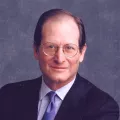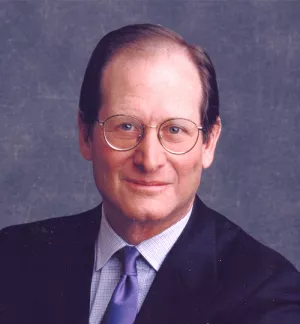Damaging events have been piling up for News Corp's troubled UK media operations in recent weeks.
A hard copy of a 2008 email chain sent to James Murdoch warned that phone hacking was "rife" at the now-shuttered tabloid The News of the World and could lead to a "nightmare scenario," calling into question again the truth of his sworn testimony that he learned of systemic illegality only in 2011.
Electronic copies of that email chain were deleted by News Corp subsidiaries in March, 2010 and again in January, 2011, when the company knew it was facing serious government inquires, raising the issue of another possible cover-up.
Nine past and present editors and reporters at The Sun, a second News Corp UK tabloid, were arrested in late January and early February as part of police investigation into whether journalists bribed public officials for information, raising questions about whether this highly profitable paper will also be consumed by a scandal that could severely injure it or even threaten its existence.
Governmental investigators have indicated that the phone-hacking scandal may be broader than previously indicated and that early knowledge may have gone high up in News International, Rupert Murdoch's UK holding company for media properties.
U.S. authorities have begun new inquiries into whether News Corp, a U.S. company, may have violated the U.S. Foreign corrupt Practices Act, which prohibits bribing of foreign officials (although the inquiry is at a very preliminary stage).
The source of the information that led to these disclosures and arrests was an independent, internal News Corp investigation that has been implacably pouring through more reams of evidence at the News Corp UK newspapers, including 300 million emails and other documents.
To the consternation of News Corp's UK employees, this meticulous inquiry has been giving the British authorities unfettered access to all suspicious or damning information -- acting as the arms and legs of three police investigations (into phone hacking, computer hacking, and bribery of public officials), a parliamentary inquiry, and an independent judicial inquiry. Numerous civil suits by alleged victims of journalistic misdeeds have settled or are pending, with more expected to come. They will, where possible, use information that the News Corp internal investigation has given to government inquiries.
There are two important dimensions of this internal inquiry right now.
First, unlike some corporate internal inquiries, this one is and will remain an independent finder of facts. The Murdochs created it and gave it unlimited powers. It will continue to turn up damning information for government investigators, given the apparent likelihood that illicit practices were widespread. Rupert Murdoch has traveled to London to mollify The Sun's restive staff. But rather than launch a Watergate-like Saturday Night Massacre by firing the independent investigators, he issued a letter affirming his support for their efforts.
Second, these facts and the governmental investigations now pose a greater likelihood of serious damage to the UK properties and news personnel, to James Murdoch, and perhaps to News Corp itself than the threat last July, when the Murdochs let go News International's CEO, Rebekah Brooks, and precipitously shut down The News of the World.
The internal inquiry's independence and broad mandate stem from its origins. After both Rupert and James Murdoch admitted last summer that their UK properties had failed for years to get to the truth of "repeated wrong-doing that occurred" (James's words), News Corp created the Management and Standards Committee (MSC) in July 2011 to conduct a full investigation of all UK practices and to give full information and cooperation to all authorities.
In a recent press release following the arrest of The Sun employees, News Corp said the Committee was created to:
undertake a review of all News International titles [The Sun, The Times and the Sunday Times], regardless of cost, and to proactively co-operate with law enforcement and other authorities if potentially relevant information arose at those titles...to take responsibility for all matters in relation to phone hacking, payments to the police and other related matters....The MSC structure is autonomous and independent of News International. It has powers to direct News International staff to co-operate fully with all external and internal investigations, and to preserve, obtain and disclose appropriate documents. [Emphasis added.]
In his letter on February 17, to "colleagues" at The Sun, Murdoch praised their "exceptional journalism" but went on to say:
My continuing respect makes this situation a source of great pain for me. ... We will obey the law, illegal activities simply cannot and will not be tolerated. ... [the Management and Standards Committee] has been instructed to cooperate with the police. We will turn over every piece of evidence we find---not just because we are obligated to but because it is the right thing to do.
The MSC structure is filled with accomplished lawyers. The chair of the MSC is a noted British Queen's Counsel, Lord Grabiner. Among its members is the new News Corp General Counsel, Gerson Zweifach, who until recently was a partner at a top U.S. firm, Williams and Connolly. Linklaters, a respected UK firm, is in charge of the internal inquiry and has hired dozens of people, including forensic accountants and forensic computer technicians. The Committee reports to Joel Klein, News Corp Executive VP and director, and through Klein to Viet Dinh, a non-employee responsible for keeping the whole News Corp board informed. Klein was head of the New York public school system after serving as assistant attorney general (antitrust) under Bill Clinton. Dinh, a professor at Georgetown, was an assistant attorney general (federal legal policy) under George W. Bush.
To be sure, some corporate internal investigations are whitewashes, asking narrow questions or skewing the evidence. Enron's internal inquiry and News Corps's own inquiry into phone hacking several years ago are prime examples. But there are also many examples of companies that hire prestigious lawyers or law firms and take the hide off their practices and their key personnel. The investigation by Siemens, and HP's investigation of Mark Hurd's conduct, are prime examples of internal investigations conducted in rigorous good faith.
Here, numerous factors support robust independence and unrelenting excavation of the facts. As his letter to The Sun staff demonstrates, Rupert Murdoch and News Corp have demonstrably and publicly committed to the internal investigation--and cannot back off without causing a firestorm (I was in Washington on that famous Saturday night). The leading lawyers have independent reputations and will not sacrifice their careers or their good character by participating in a cover-up. This applies as well to the noted lawyers in News Corp employ (Dinh, Klein, and Zweifach). The many different individuals intimately involved are a check on each other--it is hard to imagine anyone suggesting an impropriety or blocking a line of questions.
The importance of such an internal inquiry is shown in the discovery, in a stray storage box, of the hard-copy "warning" email that went to James Murdoch in 2008 and the exploration of how this email was deleted from various News International servers. The development of such facts might have eluded government investigators or taken far longer.
The implications of the steady flow of the internal inquiry's facts into governmental hands (and perhaps onto to private litigants) cannot be ascertained at the moment, because the authorities' investigations are not over.
But among the live issues are the rising cost of all the civil law suits, of the investigation, and any fines or penalties ($400 million has already been spent, according to news reports); the possibility of civil or criminal claims against News Corp's UK personnel at the newspapers and in the holding company, News International; the fate of James Murdoch (does he remain a top executive at News Corp, does he get charged in the UK) the degree of damage at -- and ultimate fate of -- The Sun (to rally the troops, Murdoch announced a new Sunday edition); the effect of the "civil war," as some UK journalists have termed it, between News Corp's UK reporters and editors and the investigators; whether the U.S. inquiry has any legs (with all sorts of other adverse implications possible under U.S. law for a media company); whether this leads to changes in News Corp governance.
There is also the general question about media practices and standards being addressed by the UK judicial inquiry, as well as the immediate charge from The Sun that the MSC is violating reporters' rights to protect sources by revealing reporters' sources. In his letter, Rupert Murdoch acknowledged the importance of protecting sources, but said "we cannot protect people who have paid public officials."
The independent internal inquiry will grind forward. But in the back of everyone's mind is the ultimate question: what will it do if -- conditional emphasized -- it uncovers damning evidence of what did Rupert know, and when did he know it?
Heineman, Ben. “News Corp's Internal Inquiry Poses the Greatest Threat Yet to Rupert Murdoch.” The Atlantic, February 17, 2012


